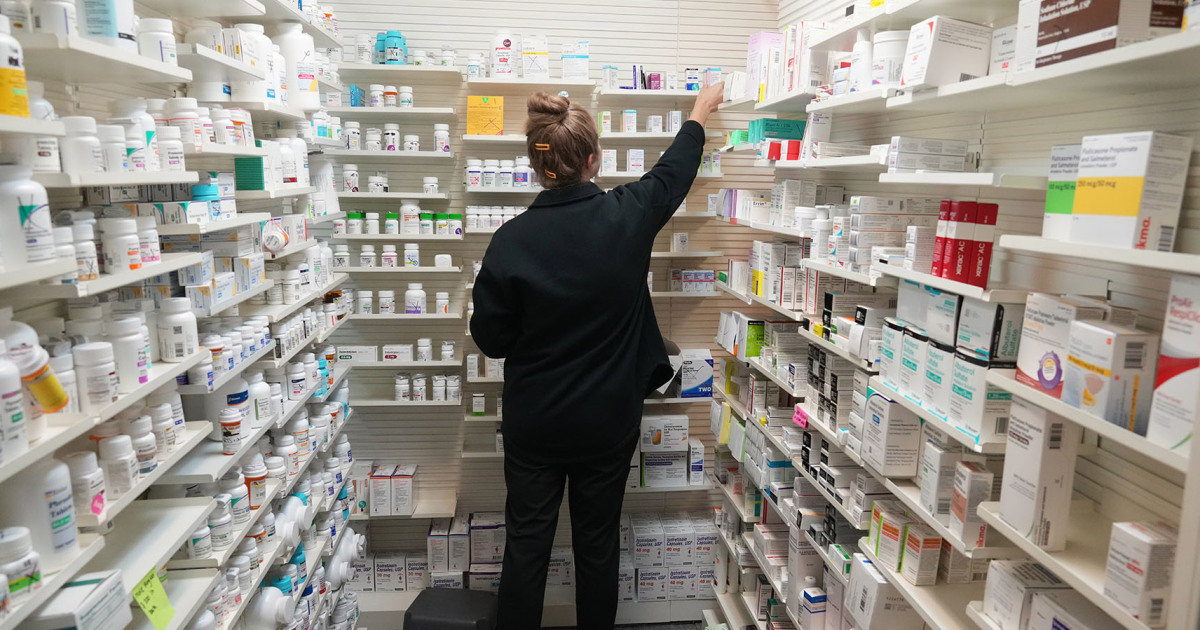Analysts are already warning that U.S. consumers could see higher prices due to new tariffs President Donald Trump plans to impose on drug product imports as soon as next week.
But a series of exemptions may blunt the ultimate impact.
In a Truth Social post late Thursday, Trump said that any branded or patented pharmaceutical products brought into the U.S. would face a 100% tariff starting Oct. 1.
U.S. imports of pharmaceuticals totaled about $213 billion in 2024, a threefold increase from a decade earlier, according to data from the United Nations Comtrade Database.
With Asia alone accounting for just over 20% of those imports by value, U.S. consumers could see a “meaningful commercial hit,” Louise Loo, head of Asia economics at Oxford Economics research group, said in a note to clients.
Previous studies have shown that U.S. annual spending per capita on prescription drugs is about double the rest of the developed world. In July, Trump announced a plan to “get Americans the best prices in the world for prescription drugs” that involved asking major drugmakers to match low prices they offer elsewhere in the world.
However, it is not clear what actions the pharma firms have taken to begin addressing that demand. The pharmaceutical industry is already warning that the new tariffs could derail further drug development while also raising prices.
“Every dollar spent on tariffs is a dollar that cannot be invested in American manufacturing or the development of future treatments and cures,” Alex Schriver, senior vice president for PhRMA, the drug industry’s primary lobbying group, said in a statement. “Medicines have historically been exempt from tariffs because they raise costs and could lead to shortages.”
Despite those warnings, a significant share of drug products could wind up being exempted from the new import duties.
The tariffs do not appear to apply to so-called generic drugs, which account for 9 out of 10 prescriptions filled in the U.S., according to the Food and Drug Administration. The White House did not immediately respond to a request to confirm the exemption for generics, but assuming they will remain tariff-free, the impact to consumers could be more limited than feared.
Trump also specified that any drug companies that currently have, or have committed to building, U.S.-based drug-making facilities would be exempted from tariffs. That’s a category that includes numerous major drugmakers.
“Many pharmaceutical companies have facilities in the U.S., so it may be relatively easy to superficially expand those facilities to avoid tariffs being applied,” Paul Donovan, chief global economist at UBS Global Wealth Management, wrote in a note to clients.
Analysts at JPMorgan agreed: “While there remains very limited details, we note that this will likely lead to a majority of pharma products being excluded from any tariffs” because most major companies have recently increased or have started to increase their U.S. manufacturing facilities.
On the White House website, the administration maintains a “running list of new U.S. investment” from private companies. At least 15 pharmaceutical or drug makers are listed with investments ranging from new manufacturing facilities, tens of billions in expanded U.S. production and increased R&D spending. Many of those announcements would appear to meet the requirements laid out by Trump to avoid the new tariff.
Two major European drugmakers, Roche and Novartis, said in statements that they expected little to no impact from the newly announced duties.
“We are working to ensure that all major Novartis medicines for U.S. patients are manufactured in the U.S.,” Novartis said in a statement. “The announced 100% tariff should not have an impact.” Roche pointed to ongoing factory construction in the U.S., with multiple sites being expanded and upgraded in Kentucky, Indiana, New Jersey and California.
Trump has signaled since at least April that drug imports would face tariffs. In anticipation, major drugmakers have indicated they have been stockpiling supplies, analysts said.
As a result, consumers are unlikely to feel immediate effects even though the tariffs are set to kick in next week.
“We think there may have been significant inventory accumulation this year,” Neil Shearing, group chief economist with Capital Economics, said in a note.
This summer, Trump placed a maximum 15% tariff on most pharmaceuticals coming in from the European Union, which accounts for 60% of drugs imported by the U.S. E.U. officials believe that this agreement will shield it from the 100% duties, though they said they could not be certain.
“This clear all-inclusive 15% tariff ceiling for E.U. exports represents an insurance policy that no higher tariffs will emerge for European economic operators,” a European Commission spokesperson told NBC News on Friday.
Ireland’s deputy prime minister, Simon Harris, who also acts as trade minister, said his country is “studying the impact of this announcement” but added that he believed the 15% cap on pharma tariffs remained in place. Ireland alone accounts for 24% of pharma imports to the U.S.

